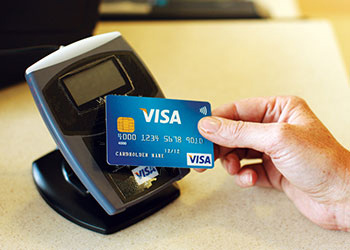Amazon and Visa have settled their payment fee dust up, with an agreement that Amazon will continue to accept Visa credit cards around the world.
The agreement announced on Thursday means Amazon customers can continue using Visa credit cards, the e-commerce group was quoted by Reuters as saying in a statement.
Neither side disclosed what fees would be levied going forward.
“This agreement includes the acceptance of Visa at all Amazon stores and sites today, as well as a joint commitment to collaboration on new product and technology initiatives,” a Visa spokesperson was quoted as saying in an email.
![]()
Fee standoff
The whole case stems from last November, when British customers were informed that Amazon from 19 January 2022, would stop accepting Visa credit cards for payments in the United Kingdom.
Amazon at the time admitted its decision was “inconvenient” for customers with UK Visa credit cards, but it had taken the decision because of the “high fees Visa charges for processing credit card transactions” on its UK cards.
Although the case seemed to be focused on the UK, there were concerns the Visa ban would spread worldwide.
Amazon in the US for example was said to be considering dropping Visa as a partner on its co-branded credit card.
Amazon had also recently introduced surcharges on customers using Visa credit cards in Singapore and Australia, citing high fees as the reason.
Amazon argued such payment fees should be “going down over time with technological advancements, but instead they continue to stay high or even rise.”
Some observers blamed the fee increases on the UK’s exit from the European Union. This was reportedly because the EU enforced a cap on fees charged by card issuers, and this cap was no longer in place in the UK, meaning providers were free to increase charges.
In September for example, PayPal announced it was raising its fees for payments between businesses from the European Economic Area to the UK.
But moves like this triggered regulatory concern and scrutiny.
In January the UK’s Payment Systems Regulator (PSR) told parliament’s Treasury Select Committee that it had not seen evidence as to justify why card payment processors are increasing their fees.
It said that it found no evidence to justify the fee rises, and the PSR said that, if it becomes apparent that there are no real prospects of improving competition in the market, it will be willing to consider additional regulation to protect consumers and businesses from rising prices.
Meanwhile just days before the 19 January deadline, Amazon emailed affected customers using Visa cards, telling them they could continue to use their Visa credit cards to pay for items, and for Amazon Prime.
Now a more permanent solution has reportedly been agreed.
Retailer strength
Some observers are citing this case as an example of the power that major retailers now weild in the retail ecosystem.
“As this chapter of the Amazon and Visa feud closes, it’s important to keep one eye on the bigger picture: businesses are now pushing back against unfavourable terms, ones they historically had little choice but to accept,” noted Siamac Rezaiezadeh, director of product marketing at GoCardless, an online direct debt specialist.
“The landscape has now changed dramatically with the rise of BNPL (buy now, pay later) and open banking-enabled payments, both of which are increasingly popular with consumers,” noted Rezaiezadeh. “This gives businesses a genuine alternative to the card schemes.”
“Replacing costly cards is now a viable, and perhaps better, option for every company, particularly as they do more business online — an environment which cards were simply not designed for,” said Rezaiezadeh.
“The continued maturity of innovations like open banking, coupled with business and consumer demand for more ‘digital-first’ payment methods, means that we soon expect to see a shift from ‘card on file’ to ‘account on file’,” Rezaiezadeh concluded.




